AN INSTRUMENT OF PEACE
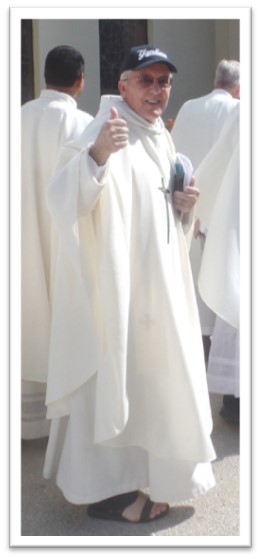 People described Fr. Rene Robert as a living saint—a “man of God” who had a special place in his heart for people cast aside by the rest of society.
People described Fr. Rene Robert as a living saint—a “man of God” who had a special place in his heart for people cast aside by the rest of society.
“He believed with his whole heart, soul, and being that every human being is a child of God,” said Fr. Timothy Lindenfelser, pastor of St. Anastasia Catholic Church in St. Augustine, in his homily at Fr. Rene’s funeral Mass, adding that Rene “sought out anyone who was neglected, marginalized, and felt unloved or abandoned.”
Fr. Rene’s deep love for his fellow man had plunged him into the dark underbelly of north Florida on many occasions, and despite concerns of friends and authorities, he persevered in what he saw as his God-given mission.
“He was out there ministering to people everyone else gave up on: prostitutes, convicts, drug addicts,” said St. Augustine’s Sheriff Shoar, a friend of Fr. Rene’s and a fellow Catholic. “When I warned him, he told me, ‘I am doing what God is telling me to do,’ and I believed him. He died doing what he loved.”
Fr. Rene was well-known in the St. Augustine area, and he was often seen riding his bicycle because he constantly lent his car to those who needed it more. But his altruism went far beyond that.
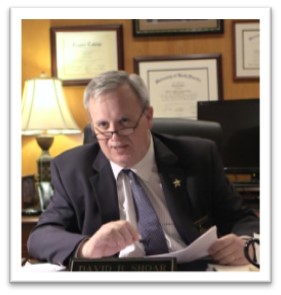
When Fr. Rene ate meals with his fellow priests in St. Augustine, for example, it was common for him to take all the leftover food and discreetly give it to the hungry.
A regular blood donor, he gave an estimated 32 gallons throughout his life and encouraged his parishioners to contribute as well.
A friend of the Hispanic community, he helped establish the first weekly Spanish-speaking Masses in the St. Augustine area.
He attended numerous vigils in peaceful protest of the death penalty, civil rights abuses, and other social issues close to his heart.
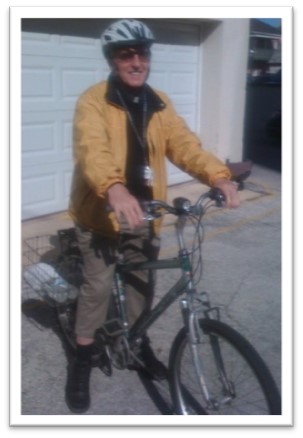
He learned sign language so that he could minister to the hearing impaired, and he worked as a chaplain at the Florida School for the Deaf and Blind.
His love for God’s creation was not only evident in his love for people; he fed stray animals and cared deeply about the environment. In fact, few things upset Fr. Rene, unless he saw a person throw something away that could have been recycled.
“Fr. Rene dumped the Cathedral trash cans out on the floor looking for things to recycle, driving the housekeeper up a wall, long before recycling became acceptable,” Fr. Lindenfelser recounted in his homily. “He never stopped.”
Fr. Rene was also very human and had his share of eccentricities. His friend, Fr. John Gillespie, pastor of St. Sebastian Church in St. Augustine, said, “We are still laughing about the strange, funny things that Rene did.”
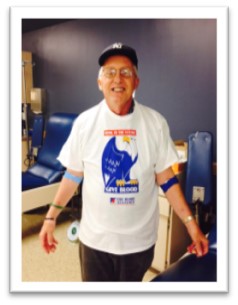
“He was always leaving things behind, misplacing things,” said Fr. Lindenfelser. “He occasionally told offensive jokes. He might antagonize a fellow priest. I remember when he hung his Christmas cards in front of another priest’s bedroom and kept them up until Easter despite the man’s repeated pleas. He sometimes went into a convent to raid the refrigerator.”
But, said Fr. Lindenfelser, “we treasure these things about Father Rene and we are furious and heartbroken that he was suddenly and violently taken from us.”
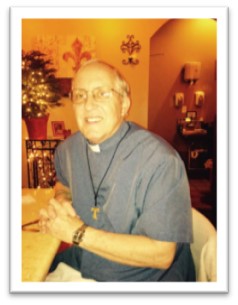
Fr. Rene’s visits to prisons where he ministered to deaf inmates eventually led to helping inmates and ex-convicts with no hearing impairments as well. He also stood up for their rights when they had no one else to do so.
“Fr. Rene and I were at odds with a particular case,” said Detective Eugene Tolbert, who, ironically, would be the lead detective in the search for Fr. Rene and the ensuing murder case. “Even though that evidence to me seemed overwhelming, Fr. Rene was still willing to support that person, spiritually and be there for them… Fr. Rene was the only person in the audience for this defendant.”
It was only after Fr. Rene’s murder that Detective Tolbert saw how much good he had done in the community, and how many people he tried to help. It was through this outreach to prisoners and ex-convicts that Fr. Rene met Steven Murray, the young man who would eventually murder him.

